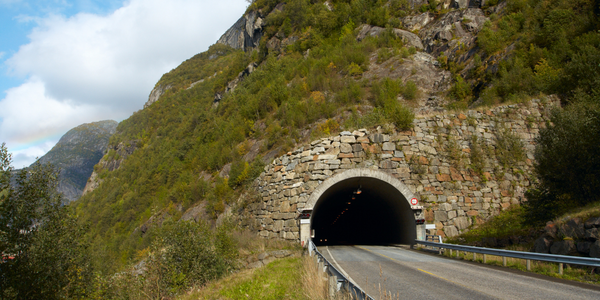下载PDF
Avid Everywhere Empowers Al Ghad Al Arabi TV's Transition to a Leading Pan-Arabic News Channel
技术
- 应用基础设施与中间件 - 数据库管理和存储
- 基础设施即服务 (IaaS) - 云存储服务
适用行业
- 水泥
- 建筑与基础设施
适用功能
- 设施管理
- 物流运输
用例
- 施工管理
- 基础设施检查
服务
- 系统集成
- 培训
挑战
Al Ghad Al Arabi TV 是埃及第一家私营新闻广播公司,旨在将自己打造成领先的泛阿拉伯语 24/7 新闻频道。面临的挑战是将中央业务从伦敦转移到开罗,将开罗媒体城的制作中心转变为主要的全天候 24/7 新闻设施。伦敦设施将继续作为广播中心和灾难恢复地点,贝鲁特设施将按计划进行。该频道的愿望是与该领域现有的领导者竞争,需要进行彻底的重组和转型计划,以获得国际广播公司的认可。该挑战还涉及确定媒体城现有基础设施和运营模式的差距,解决技术变革、运营工作流程、培训、品牌和屏幕图形,以及招聘编辑和运营人员。目标是增强现有基础设施,以便制作 24 小时新闻和社交媒体,在规定的时间范围内和紧张的预算内提供多地点解决方案。
关于客户
Al Ghad Al Arabi TV 是埃及第一家私营新闻广播公司,提供 24/7 的简报,报道阿拉伯世界的新闻。其位于开罗媒体城的主要播出和制作中心依靠 Avid Everywhere 愿景,将 Avid | 汇聚在一起。 Avid MediaCentral 平台上的 ISIS 共享存储、iNEWS、Media Composer 和其他 Avid 系统可用于线性广播和社交媒体分发。 Al Ghad Al Arabi TV 最初是一个新闻和娱乐频道,节目针对年轻人市场,于 2013 年在伦敦播出,并计划随后在开罗和贝鲁特设立工作室和制作设施。然而,当 Abdul Latif El Menawy 于 2014 年被任命为首席执行官兼董事总经理时,他的职责是建立一个泛阿拉伯 24 小时新闻频道,与该领域现有的领导者竞争。
解决方案
实施专家 HiMedia Pro 决定使用 Avid 作为一站式商店,充分利用制造商的桌面编辑、集成图形、存档系统和社交媒体功能。基于 MediaCentral 平台的最初新闻编辑室安装包括 Avid iNEWS、iNEWS Command、Interplay |制作和资产管理、AirSpeed 5000、五个 Media Composer 许可证、五个 Media Composer | NewsCutter Option 许可证和 Avid ISIS | 5500存储系统。该端到端解决方案旨在取代媒体城限制增长的现有基础设施。该项目的第二阶段安装了 Interplay | MAM Active Archive 和 ISIS 5000,以及媒体 |更快摄取和媒体总监 |分发以简化向多个平台的分发。新系统实现了更大的协作,使新闻团队能够快速、轻松地共享媒体。多个用户可以在摄取内容时访问内容,并处理新闻、长篇或在线的单个故事,而不会影响其他员工。增加了存储容量,以应对更高的人员配备水平和更多的技术许可,并增强了摄取和播放设施。
运营影响
数量效益
相关案例.

Case Study
System 800xA at Indian Cement Plants
Chettinad Cement recognized that further efficiencies could be achieved in its cement manufacturing process. It looked to investing in comprehensive operational and control technologies to manage and derive productivity and energy efficiency gains from the assets on Line 2, their second plant in India.

Case Study
IoT System for Tunnel Construction
The Zenitaka Corporation ('Zenitaka') has two major business areas: its architectural business focuses on structures such as government buildings, office buildings, and commercial facilities, while its civil engineering business is targeted at structures such as tunnels, bridges and dams. Within these areas, there presented two issues that have always persisted in regard to the construction of mountain tunnels. These issues are 'improving safety" and "reducing energy consumption". Mountain tunnels construction requires a massive amount of electricity. This is because there are many kinds of electrical equipment being used day and night, including construction machinery, construction lighting, and ventilating fan. Despite this, the amount of power consumption is generally not tightly managed. In many cases, the exact amount of power consumption is only ascertained when the bill from the power company becomes available. Sometimes, corporations install demand-monitoring equipment to help curb the maximum power demanded. However, even in these cases, the devices only allow the total volume of power consumption to be ascertained, or they may issue warnings to prevent the contracted volume of power from being exceeded. In order to tackle the issue of reducing power consumption, it was first necessary to obtain an accurate breakdown of how much power was being used in each particular area. In other words, we needed to be able to visualize the amount of power being consumed. Safety, was also not being managed very rigorously. Even now, tunnel construction sites often use a 'name label' system for managing entry into the work site. Specifically, red labels with white reverse sides that bear the workers' names on both sides are displayed at the tunnel work site entrance. The workers themselves then flip the name label to the appropriate side when entering or exiting from the work site to indicate whether or not they are working inside the tunnel at any given time. If a worker forgets to flip his or her name label when entering or exiting from the tunnel, management cannot be performed effectively. In order to tackle the challenges mentioned above, Zenitaka decided to build a system that could improve the safety of tunnel construction as well as reduce the amount of power consumed. In other words, this new system would facilitate a clear picture of which workers were working in each location at the mountain tunnel construction site, as well as which processes were being carried out at those respective locations at any given time. The system would maintain the safety of all workers while also carefully controlling the electrical equipment to reduce unnecessary power consumption. Having decided on the concept, our next concern was whether there existed any kind of robust hardware that would not break down at the construction work site, that could move freely in response to changes in the working environment, and that could accurately detect workers and vehicles using radio frequency identification (RFID). Given that this system would involve many components that were new to Zenitaka, we decided to enlist the cooperation of E.I.Sol Co., Ltd. ('E.I.Sol') as our joint development partner, as they had provided us with a highly practical proposal.

Case Study
Splunk Partnership Ties Together Big Data & IoT Services
Splunk was faced with the need to meet emerging customer demands for interfacing IoT projects to its suite of services. The company required an IoT partner that would be able to easily and quickly integrate with its Splunk Enterprise platform, rather than allocating development resources and time to building out an IoT interface and application platform.

Case Study
Bridge monitoring in Hamburg Port
Kattwyk Bridge is used for both rail and road transport, and it has played an important role in the Port of Hamburg since 1973. However, the increasing pressure from traffic requires a monitoring solution. The goal of the project is to assess in real-time the bridge's status and dynamic responses to traffic and lift processes.

Case Study
Bellas Landscaping
Leading landscaping firm serving central Illinois streamlines operations with Samsara’s real-time fleet tracking solution: • 30+ vehicle fleet includes International Terrastar dump trucks and flatbeds, medium- and light-duty pickups from Ford and Chevrolet. Winter fleet includes of snow plows and salters.






